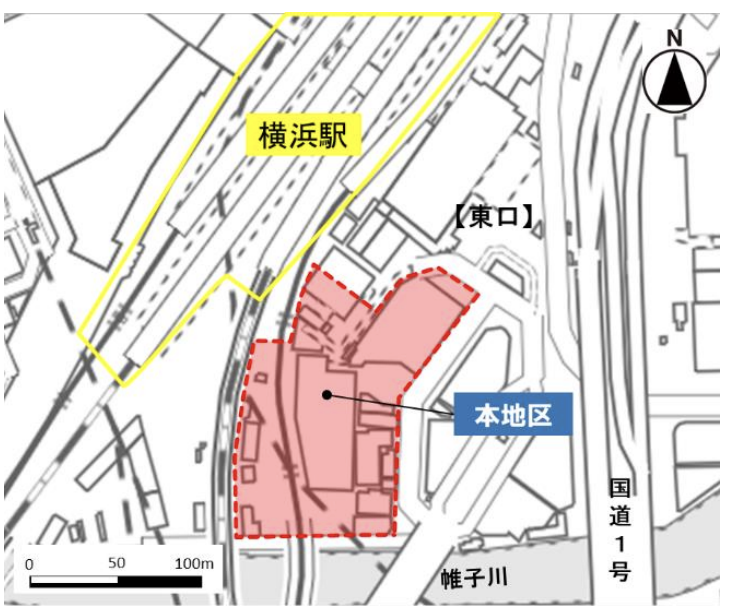Many people are interested in real estate investment but wonder if they are suited for it. Certainly, real estate investment is not for everyone, and not everyone can succeed in the same way. On the other hand, however, there are common ways of thinking and principles of behavior shared by successful investors, and these characteristics can be acquired. In this article, we will specifically indicate the personalities, behavioral characteristics, and values of people who are suited to real estate investment, and explain the habits and thought patterns common to successful investors, as well as the tendencies of those who tend to fail.
By going beyond investment know-how to the underlying philosophy and values, we will explore hints for sustainable growth that go beyond mere knowledge acquisition. We hope that the contents of this article will help those who aim to build long-term assets through real estate investment to determine their own suitability and establish guidelines for the future.
Characteristics of Suitable People for Real Estate Investment
There are some common characteristics of people who are suited to real estate investment. The main characteristics are listed below and explained in detail.
Able to plan continuously with a long-term perspective
Real estate investment is not about making large profits in the short term, but rather about growing assets over the long term. Long-term loans are often taken out to purchase properties, and it takes time to recover the investment through rental income. Therefore, real estate investment is suited to those who can plan for the next 5 to 10 years, rather than just focusing on immediate profits. People with a long-term perspective are not swayed by slight economic fluctuations or market waves, and can make calm decisions to achieve sustainable growth. Conversely, those who are too fixated on short-term gains will have difficulty reaping the long-term asset-building benefits of real estate investment.
Dynamic and quick to make decisions
Encountering a good property is a once-in-a-lifetime experience. It is not unusual for a property in good condition that comes onto the market to be bought by another investor while you are still wondering about it. People who are suited to real estate investment are those who are able to gather information on their own and make decisions and take action quickly when the time is right. Real estate owners need to be able to take the initiative in conducting on-site surveys of properties, negotiating with financial institutions, arranging renovations, and so on. Of course, one must also be calm so as not to make mistakes by making poor decisions, but one cannot seize opportunities if one is too cautious and misses good chances. The ability to make decisions based on appropriate risk analysis and to take the courageous step once you are convinced that "this property will do well" is a major weapon for success in real estate investment.
Ability to make calm and logical decisions
In real estate investment, there are many situations where you are forced to make big decisions because you are investing a large amount of money. Those who are suited for real estate investment are those who are able to make calm and logical decisions without being influenced by emotions. For example, when selecting a property, it is necessary to analyze it based on multifaceted data such as the future potential of the location, rental demand in the surrounding area, estimated yields, income/expense simulations, and estimates of repair costs. Those who can evaluate the situation based on numbers and facts, weigh the expected value and risks, and draw conclusions will be less likely to make a bad investment decision. On the other hand, those who only act on a hunch, such as "it somehow looks good" or "I have a gut feeling it will work," are likely to suffer unexpected losses and may not be suitable for real estate investment.
Eager to study and continue self-improvement
The environment surrounding real estate investment is constantly changing, including amendments to laws, changes in the tax system, and changes in the economic climate. Therefore, people who are willing to keep learning are suited to real estate investment. For example, there is a wide range of things to learn, from rental market trends and tax planning methods to new management know-how and technology applications. People who are eager to learn can keep up with the latest information and incorporate it into their own investment strategies. In addition to gaining knowledge from books and seminars, it is also important to be ambitious enough to learn from senior investors and consult with experts. Successful investors, without exception, are committed to self-improvement and are willing to invest in themselves to develop themselves. In other words, those who are willing to continue to improve themselves as valuable "human assets" are the ones who will reap the greatest returns in the future.
Accept and manage risk
As an investment, real estate investment involves various risks. These risks include a decrease in rent income due to vacancies, an increase in loan repayment burden due to rising interest rates, damage to properties due to natural disasters, and a drop in real estate prices due to economic fluctuations. People who are suited to real estate investment are those who accept the risks without excessive fear and are able to manage them appropriately. Specifically, they are those who can simulate risks sufficiently before purchasing a property, keep the amount of loan at a reasonable level, prepare for contingencies by purchasing insurance, and choose an area with high demand as a measure against vacancies. If they are calm and prepared to face risks and take countermeasures, they can flexibly cope with unexpected situations. Conversely, if a person does not want to take on any risk, the investment itself will not be viable. Those who have the capacity to accept moderate risk and then control it will likely achieve stable results over the long term.
Integrity and trust are important.
Real estate investment is not possible without relationships between people. Building good relationships with the real estate companies that broker properties, financial institutions that provide loans, property management companies that manage properties, construction companies that request renovation work, and tenants who actually live in the properties is a major key to success in real estate investment. The key to a successful investment lies in building good relationships with these people. The right person for real estate investment is one who is sincere and can build trust with these people. The trust earned by keeping promises and dealing with people with a sincere attitude is a valuable asset that money cannot buy.
It is also important to have an unwavering attitude of making final decisions based on one's own axis while listening to the opinions of others. Those who can make decisions based on their own convictions without being swayed, while referring to the advice of those around them, will be able to manage their investments in a stable manner. After all, in investment, "people" are both a risk and a great opportunity. Those who value the bonds with others and can build cooperative relationships with the people around them, viewing them as "human assets" rather than mere strangers, will be able to steadily lead their real estate investments to success.
Have a clear sense of purpose and philosophy
People who have a clear sense of purpose and their own philosophy are suited to real estate investment, not just those with the motive of "I just want to make more money. For example, "I want to build assets for my family's future security," "I want to contribute to society by providing a quality living environment," "I want to secure real estate income to build a foundation for my future independence or entrepreneurship," etc. Each person will have his or her own reasons for starting investment and values to cherish. Those who have such a core philosophy will be consistent in their investment decisions, and when in doubt, they will return to their starting point and not lose their direction. In addition, by making investments in line with one's own philosophy rather than simply making money, it is easier to stay motivated and continue investing. Just as a "management philosophy" is important for corporate management, it is very important for individuals to have a philosophy of "what you are doing it for" in order to create an unshakable axis for their investments.
Thinking and actions common to successful investors
Overlapping with the characteristics listed above, people who are successful in real estate investment share common ways of thinking and patterns of behavior. Let's look at some of the key points we can learn from their habits and mindset.
-
Thorough Planning and Verification: Successful investors conduct thorough market research and income/expense planning before purchasing a property. After purchasing a property, they regularly review the income and expenses, and if there are any discrepancies with the plan, they analyze the causes and apply the results to their next strategy. Our investment management is characterized by a constant PDCA cycle, rather than a haphazard approach.
-
Sense of balance between risk and return: Good investors know how to balance boldness and prudence. They act boldly when they see an opportunity, but they do not venture into the dark. They always calmly assess risk and return and are prepared to do their best, assuming the "worst-case scenario. We will continue to take on challenges to the extent that they do not undermine sustainable growth, ensuring that we have a financial base (sufficient cash on hand and emergency reserves) that can withstand a downturn in the market should it occur.
-
Networking and leveraging: Successful people in real estate value a network of trusted professionals and associates. Good property information often comes from a network of trusted relationships, and a network of contacts is reassuringly supportive, whether it is for advice on financing or advice on problems that may arise. Successful investors do not try to do everything on their own, but rather take advantage of the knowledge and cooperation of those around them, who can also be considered human assets.
-
Learning from Failures: Few people succeed in the investment world without complete failure. What is important is the attitude to make the most of failures and unsuccessful experiences. Successful investors calmly analyze problems and failures as they occur, determine the causes, and take remedial action. Rather than denouncing past mistakes, they see them as opportunities for growth, and a positive mindset to continue learning is the essence of a successful person.
-
Ethics and integrity: The most successful investors are those with the highest ethical standards and integrity in their business. They make decisions based on whether or not it is the right thing to do as a human being, rather than trying to make a profit by unfair means. This unwavering attitude wins the trust of those around us, which in turn creates a virtuous cycle of good information and opportunities. Real estate investment is a long-term business, and if you act in a manner that destroys trust for the sake of short-term profit, your future growth will be hindered. Successful people know that integrity is the investment that will ultimately yield the greatest return.
Tendency of People to Fail
Conversely, what are the tendencies of those who repeatedly fail in their real estate investments? Here are some typical patterns to watch out for. Please self-diagnose to see if any of them apply to you, and if you recognize any, use them as a reference to correct your course.
-
People who start real estate investment with insufficient knowledge: Although there is a lot to learn about real estate investment, people who start without sufficient knowledge, thinking "I can handle it," tend to make mistakes. Lack of knowledge about property selection and financing can result in being forced to grab a property that is more expensive than the market price or sign a contract with unfavorable financing terms, and ignorance is a major risk. Starting without acquiring basic knowledge is like setting out on a voyage without a map.
-
Leave it to others and be easily swayed: Be wary of people who make investment decisions based on the opinions of others without having their own axes to guide them. Buying a property as recommended by a sales representative or jumping on a friend's bandwagon without thinking deeply about it can lead to investing without any axis of your own. If you end up with a loss, you will not be able to correct the course by yourself, and you will tend to get stuck. It is important to refer to the opinions of those around you, but ultimately you will not be able to achieve stable results unless you have your own axis of judgment.
-
Short-term oriented and overly optimistic: Real estate is an investment that accumulates profits over the medium to long term. If you do not understand this, and instead try to make a quick profit in a few years by buying properties with excessive borrowings, or underestimate future vacancy risks and interest rate hikes and neglect to prepare for them, your cash flow will come to a standstill and the possibility of bankruptcy will increase.
-
Lack of decisiveness and procrastination: People who are overly cautious and miss opportunities to act also tend to be less successful as a result. If you miss out on opportunities because you put off making a decision on good property information by saying, "I'll wait and see," you will not be successful. In real estate investment, it is important to make timely decisions and take action. If you lack the ability to take action, you will never achieve results, and you will probably give up on your investment halfway through.
-
Neglecting trust: If you are not faithful in dealing with tenants or neglecting property management, problems will occur frequently and operational efficiency will deteriorate. If you put short-term profit first and spare no effort or expense, your reputation will be damaged and you may find yourself in a vicious cycle of not attracting quality tenants. Real estate investment is a business that depends on the cooperation of others. If you disregard relationships of trust and operate in a self-righteous manner, you will eventually come to a standstill.
Conclusion
We have looked at the characteristics of people who are suited to real estate investment and the kind of person who can succeed. If many of these points apply to you, please try to develop your own strengths while pursuing your investment path. On the other hand, if you feel that you may not be a good fit, there is no need to be pessimistic. All of the qualities and ways of thinking mentioned above can be acquired or strengthened. For example, knowledge can be supplemented through study, and decisiveness and risk management skills can be cultivated through a series of small experiences.
The important thing is to understand your weaknesses and continue to make efforts to compensate for them. Also, clearly define your own philosophy and goals that you want to achieve through real estate investment. If you keep an unshakeable axis, cooperate with the human resources around you, and work step by step with a sincere attitude, you will surely find your way. Real estate investment is not a magic way to make easy money, but with the right attitude and preparation, it can be a powerful way to build a solid asset base for your life.
Beginners have nothing to fear. Start today, accumulate as much knowledge as you can, and start with small actions. The accumulation of these actions will eventually lead to great results and a path to sustainable growth. As long as you continue to grow as a person, the possibilities for real estate investment are endless. With sincere efforts and unwavering faith, please take the first step toward the future.

Daisuke Inazawa
Representative Director of INA&Associates Inc. Based in Osaka, Tokyo, and Kanagawa, he is engaged in real estate sales, leasing, and management. He provides services based on his extensive experience in the real estate industry. Based on the philosophy that “human resources are a company's most important asset,” he places great importance on human resource development. He continues to take on the challenge of creating sustainable corporate value.

.png)













